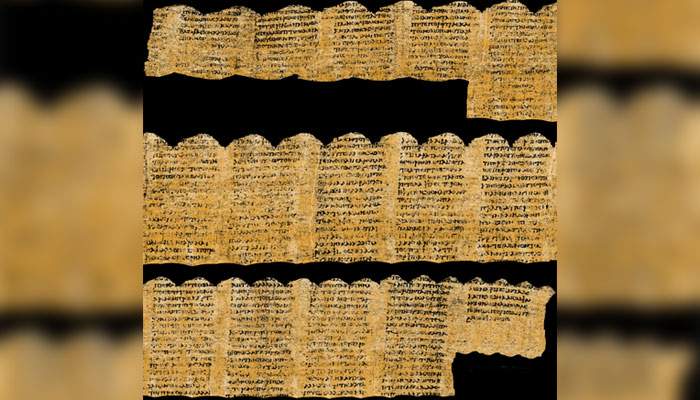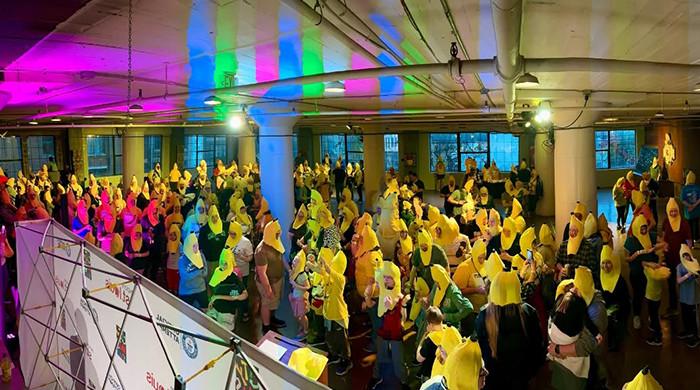Trio wins $700,000 for deciphering 2,000-year-old burned scroll with AI
The scroll had been buried by Mount Vesuvius eruption in Italy in 79AD
February 11, 2024

Three researchers recently won a $700,000 prize for using artificial intelligence (AI) to read a 2,000-year-old scroll from Mount Vesuvius, potentially rewriting ancient history, according to an expert.
The Herculaneum papyri, with approximately 800 Greek scrolls, were carbonised during the 79 Anno Domini (AD) volcanic eruption that buried the ancient Roman town of Pompeii, CBS News reported.
The scrolls, resembling hardened ash logs, are stored at the Institut de France in Paris and the National Library of Naples. Previous attempts to open them have resulted in extensive damage and even crumbling.
As an alternative, Brent Seales, a computer scientist at the University of Kentucky, and Friedman, the founder of Github, organised a contest named the "Vesuvius Challenge".
The challenge carried out high-resolution CT scans of four scrolls and offered $1 million spread out among multiple prizes to spur research on them.
Youssef Nader, a PhD student in Berlin, Luke Farritor, a student and SpaceX intern from Nebraska, and Julian Schilliger, a Swiss robotics student used AI to help distinguish ink from papyrus and work out almost unreadable Greek lettering through pattern recognition.
"Some of these texts could completely rewrite the history of key periods of the ancient world," Robert Fowler, the chair of the Herculaneum Society, told Bloomberg Businessweek magazine.
The challenge required researchers to decipher four passages of at least 140 characters, with at least 85% of characters recoverable.
Last year, Farritor decoded the Greek word for "purple" from a scroll, earning first place in the First Letters Prize, while Nader deciphered several columns of text, winning second place.
Schilliger won three prizes for his work on the Volume Cartographer, which "enabled the 3D-mapping of the papyrus areas you see before you," organisers said.
Jointly, their efforts have now decrypted about 5% of the scroll.
The scroll's author was "probably Epicurean philosopher Philodemus," writing "about music, food, and how to enjoy life's pleasures," wrote contest organizer Nat Friedman on social media.
The scrolls were discovered in a villa thought to be previously owned by Julius Caesar's patrician father-in-law, who reportedly owned an extensive library containing thousands of manuscripts.











